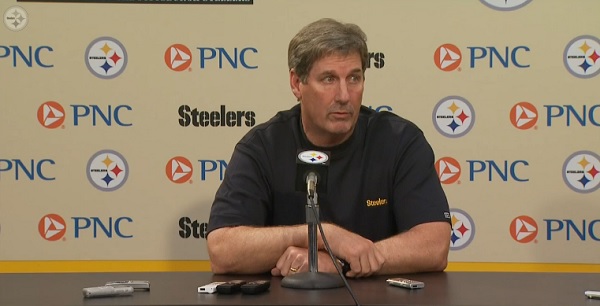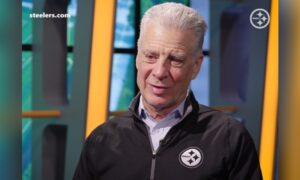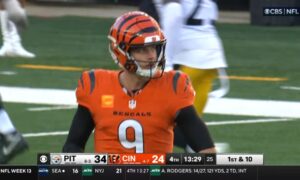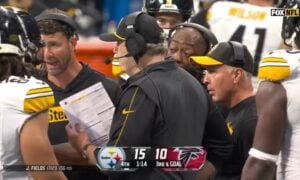Back when it was first revealed that the Pittsburgh Steelers and longtime defensive coordinator Dick LeBeau would be amicably parting ways, I naturally assumed, as no doubt most of us did, that this meant it was Keith Butler’s time.
To that end, I looked up the longtime linebackers coach’s contract status, only to realize that his most recent three-year contract—which is longer than is the norm for position coaches—was now up. It was a contract that he signed after the most recent attempt of another team trying to pry him away to interview for a defensive coordinator position elsewhere.
This naturally led me to thinking about the timing of LeBeau’s departure, who had been operating under one-year contracts for some time now, and the expiration of Butler’s most recent contract.
My speculation about the timing seemed at least partly confirmed recently by Steelers president Art Rooney II during his address of select media, in which he answered questions on a variety of topics, including LeBeau.
As many have written, Rooney spoke to reporters about the way in which the situation with LeBeau was resolved, essentially saying that while he was not forced out, if he decided to return to the organization, it would have come in a role other than defensive coordinator.
This tells me that the decision was made with Butler in mind as much, perhaps even more so, than with LeBeau, who at 77 one presumes doesn’t have many years left in coaching, though I’m hesitant to count him out.
The Steelers simply faced a pragmatic issue. They had already had in place the heir apparent defensive coordinator in-house, who had been patiently waiting for many years behind an aging icon of defensive football who insisted on taking things a year at a time, which, while admirable, poses a threat to continuity and stability.
With Butler’s most recent contract expiring, perhaps it simply came to a head that the move had to be made now in order to avoid the risk of losing him as he grew tired of waiting for his opportunity to take over the defense.
No doubt two consecutive seasons of a defensive unit finishing outside the top 10, a defensive unit continually giving up a greater number of big plays, and a defensive unit increasingly yielding more points on the scoreboard, also played a role in the decision.
Had LeBeau managed to continue to field top five defenses throughout this transitional period, maybe he would still be here. But for the long term, the shift now from Butler to LeBeau would seem to make sense, given that it was something seemingly inevitable to happen anyway.
As far as the potential of LeBeau choosing to serve in a lesser role with another team, rather than in some type of advisory role with the Steelers, perhaps this was as much a sign of respect for his longtime working partner in Butler as much as anything, leaving no question about who is actually running the defense.








